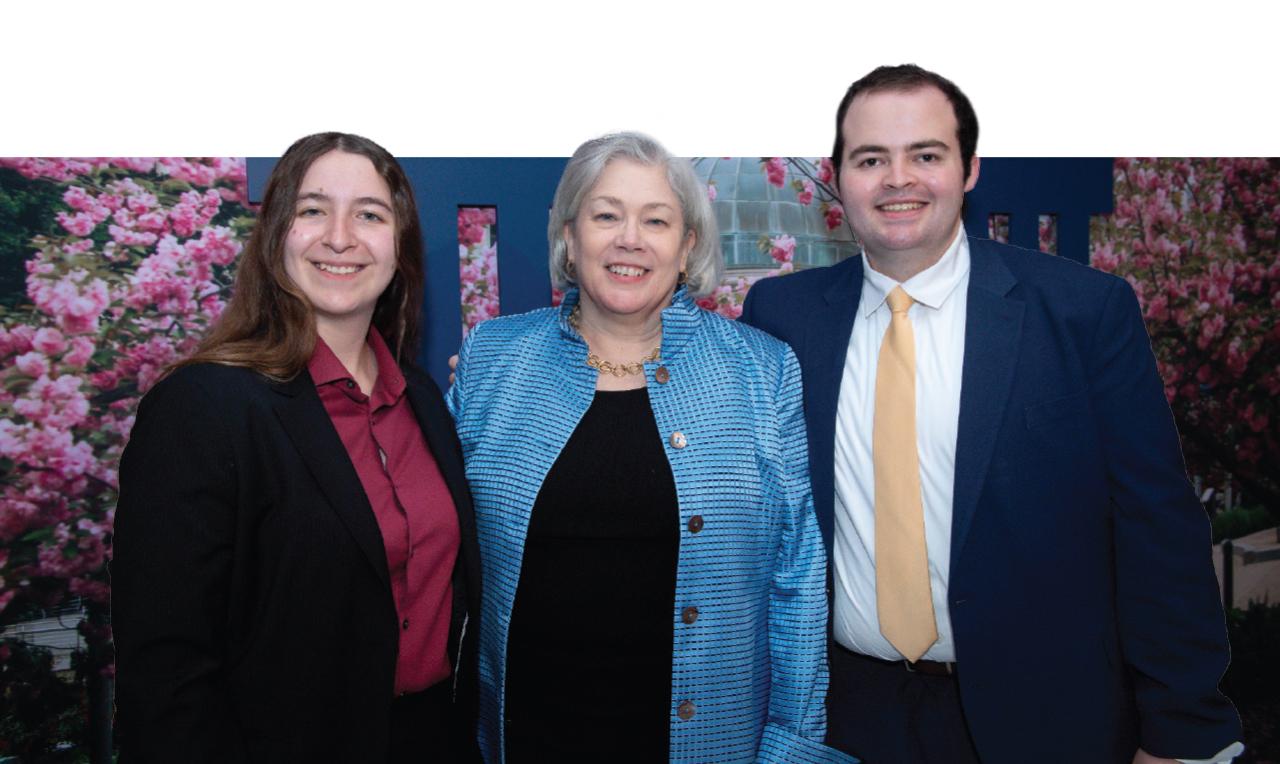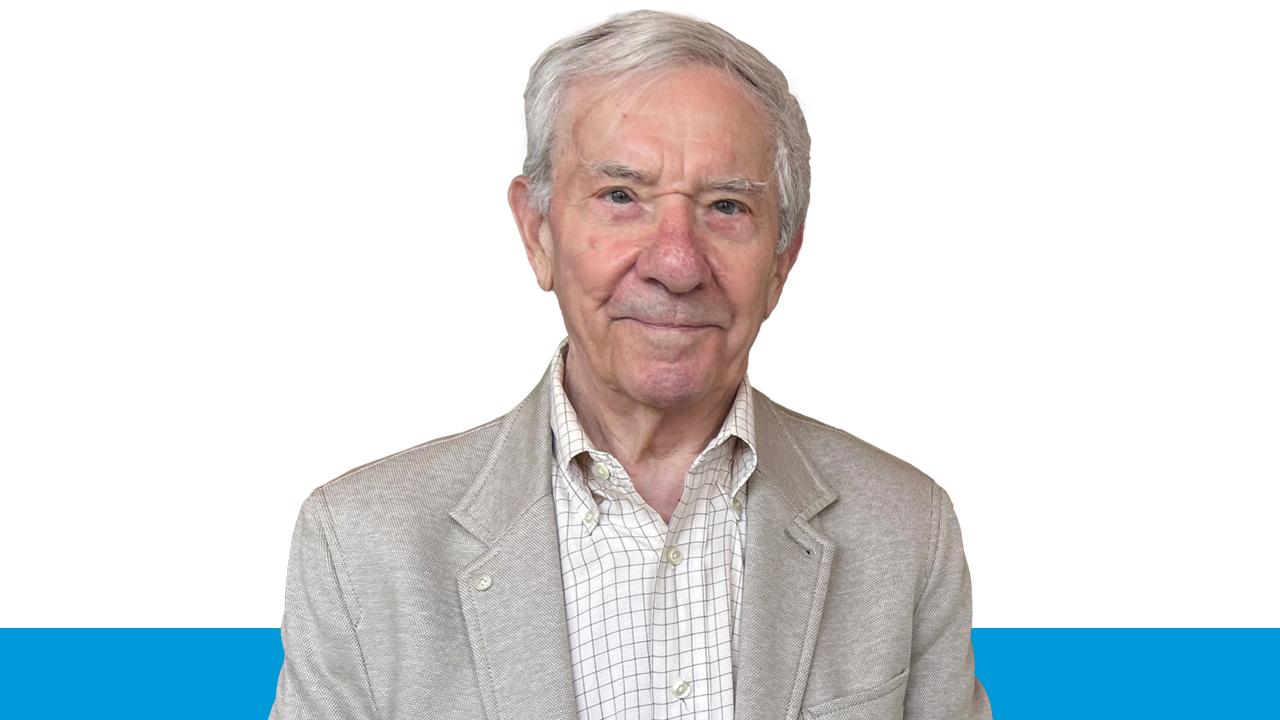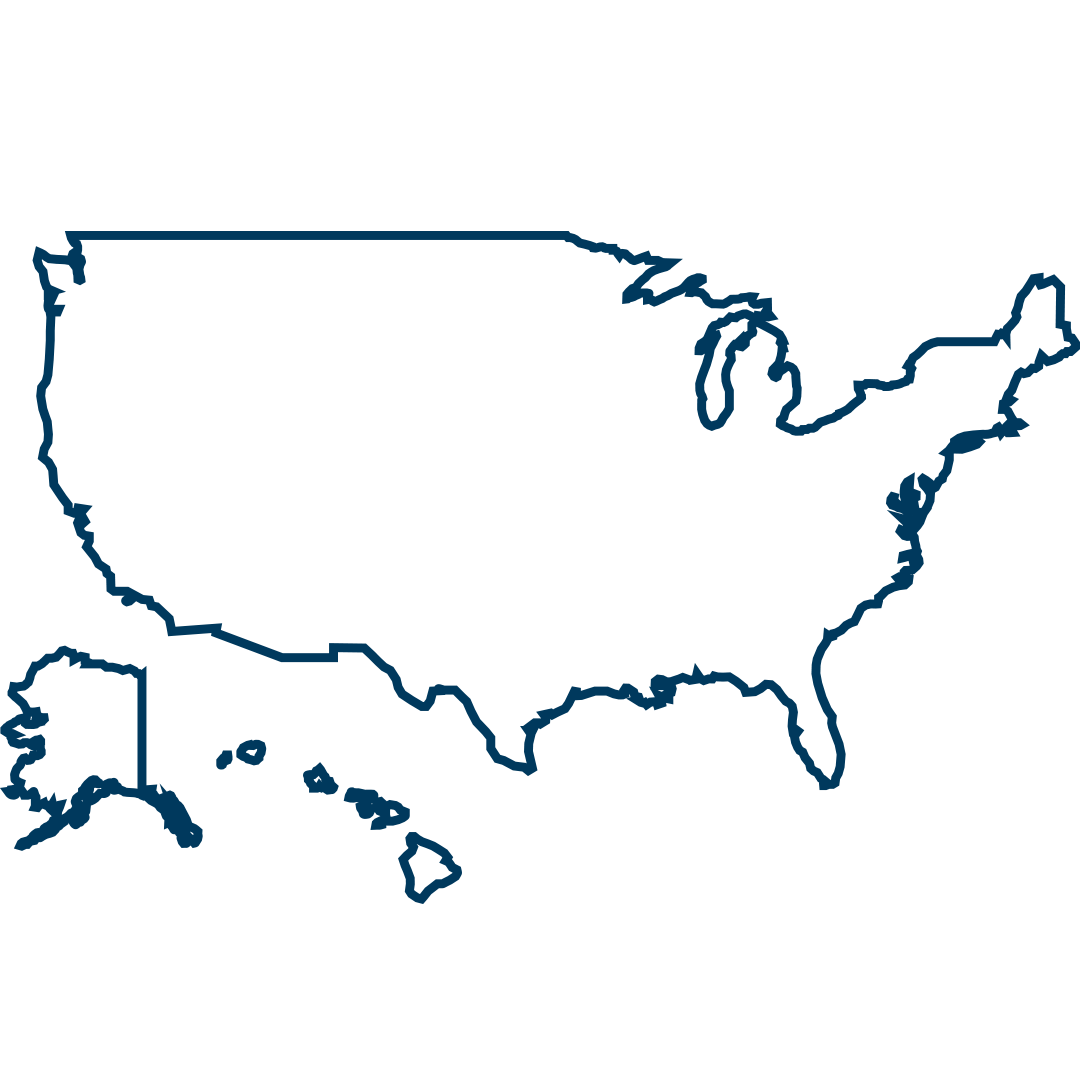The Impact of Philanthropy Summer 2025
Impact of Philanthropy
Generous gifts transform lives and the greater world.

Celebration Illustrates the Power of Giving
Students and donors connect at annual Scholarships and Fellowships dinner.
Amy Fehr, B.S. ’24, M.S. ’25, grew up watching her mother struggle with a rare autoimmune condition, shuffled between specialists without clarity or relief. It was at the GW Hospital that Fehr’s mother first found treatments that worked for her—and Fehr started to see her own future take shape.
“Our first dose of hope came from right here on this campus, and I remember thinking that this was the kind of environment that I wanted to learn from,” Fehr said.
But she worried that her dream might be unrealistic: “Going to college is a dream with a steep price tag.” So when she found that she’d not only been accepted to GW but would also receive aid through the Clark Engineering Scholars Program, Fehr was so overwhelmed that she asked her parents to reread the letter and confirm the news.
Fehr earned her B.S. and M.S. in biomedical engineering from the School of Engineering and Applied Science. Her graduate research involved building flexible medical devices using a new nanomaterial that moves with cardiac tissue.
That work was made possible by donor-based financial aid, she told over 200 attendees at the 2025 Celebration of Scholarships and Fellowships dinner in March.
“It’s a line that’s repeated ad nauseam, but that does not diminish its truth: We would not be here without you, and this university would not be what it is without you,” Fehr said.
GW donors gave $33.4 million for scholarships and fellowships last year, and the university saw a 36% increase in the number of new endowed scholarships and fellowships from the year before, Vice President for Development and Alumni Relations Donna Arbide said.
That passion was soon on full display.
Less than half an hour after announcing that GW’s Third Century Scholarship Endowment Match, launched in 2022 with a $12 million commitment by the university, was only $150,000 away from reaching its goal, Arbide retook the stage. In that brief time, a donor stepped in to close the gap. The match, which provides funds solely dedicated to need-based undergraduate scholarships, was complete.
Fehr, who spoke right after Arbide’s announcement, had to mark the moment. “This is not part of my speech, but how amazing is it to see real scholarships being made in real time?”

Students Robert Reasoner, Amanda Krantz, Maren E. Nicolaysen, Ashley Alessandra and Brianna Gist with Wolcott Foundation Chair Michael Clark (center), whose foundation assists master's students seeking a career in government service.
GW President Ellen M. Granberg attended the celebration not only as a GW leader but also as a donor herself. She and her wife, Sonya Rankin, established the Granberg-Rankin Endowed Undergraduate Scholarship last year, and this year’s recipient joined Granberg’s table for the dinner.
“A single act of giving, a scholarship, a fellowship, an endowment, plants a seed for future generations of GW students to thrive,” Granberg said. “I’m so proud to join you in support of GW students…How lucky we are that they chose GW, and how lucky the world is that they will build a future with the help of a GW education.”
“A single act of giving, a scholarship, a fellowship, an endowment, plants a seed for future generations of GW students to thrive.”
Ellen M. Granberg
President
Peyton Gallant, a junior majoring in political communication in the School of Media and Public Affairs, made GW his top choice after a campus visit. He’d always been interested in politics; as a child, he was nicknamed “the deputy mayor” for tagging along to meetings with his local politician father. Arriving in Foggy Bottom brought home just how close GW is to the heart of American political life. This, Gallant realized, was where he wanted to be. Like Fehr, he was overwhelmed when financial aid made GW possible—he had to pull over after reading the email.
“Financial aid didn’t just help me attend college, it empowered me to thrive here,” Gallant said.
Now Gallant works in GW’s Office of Undergraduate Admissions, leading tour groups and assisting prospective students. When students confide their concerns about affordability, he shares his own story. At an Inside GW event for admitted students, he recognized a student he’d led on a tour months before—someone who had told him she didn’t think she could afford to come to GW but who had listened with interest as he took her through his own financial aid journey.
“She rushed over and said, ‘You’re the reason I’m here—you made me believe it was possible,’” Gallant remembered.
The annual dinner unites scholarship donors and recipients to share stories and build connections—often in ways neither party expected.
Elizabeth Marino joined the Corcoran School of the Arts and Design’s Museum Studies Program thanks in part to a scholarship from the District of Columbia Daughters of the American Revolution (DCDAR). As she chatted with DCDAR representative Debbie Wheeler, Marino revealed that she’d written her undergraduate thesis on two key female figures in post-Revolutionary America: Martha Washington and Abigail Adams. That very day an exhibition that she’d worked on opened at the Library of Congress, exploring the lives behind the legends of George Washington and King George III.
Wheeler, who traces her own ancestry back to fourth U.S. Supreme Court Chief Justice John Marshall, was delighted: “You are the perfect candidate! We’re so glad you got our scholarship.”
“It really does feel written in the stars,” Marino said, laughing.
Photography: Liz Lynch

From Battlefield to Bedside
The William and Joanne Conway Transitioning Warrior Scholars Initiative helps veterans pursue careers in nursing.
As a kid in rural Arkansas, Justin Williams, B.S.N. ’23, grew up hearing stories about his grandfather’s service in the U.S. Navy. Those stories stayed with him, so after graduating from the University of Arkansas at Pine Bluff with a degree in biology, he joined the U.S. Navy Reserve.
While deployed to the Middle East in 2021–22, Williams witnessed firsthand the disparities in global health care systems. Later, as a volunteer firefighter in rural Arkansas, he responded to emergencies in under-resourced areas—experiences that solidified his commitment to pursuing a career in nursing.
“Being from a rural area, I understand the difficulties of not always having access to accurate medical information and resources,” he explained. “Being able to help empower communities with basic medical knowledge could potentially reduce the rate of individuals being hospitalized.”
When it came time for him to choose a nursing program, GW stood out for its support of military-affiliated students. “Everyone I have met here has been outstanding,” he said. “The GW team shines brightly.”
Receiving the Conway Nursing Transitioning Warriors Scholarship was a pivotal moment. “It truly felt like a blessing and an honor in itself because I had never been given an opportunity for something so distinguished,” Williams said.
Noted philanthropists Bill Conway Jr. and the late Joanne Barkett Conway established The William and Joanne Conway Transitioning Warriors Scholars Initiative with a $2.5 million gift in 2020 from their Bedford Falls Foundation. Nearly 40 veterans have received support to pursue Bachelor of Science in Nursing (B.S.N.) degrees, easing their financial burden and allowing them to focus on school.
“It truly felt like a blessing and an honor in itself because I had never been given an opportunity for something so distinguished.”
Justin Williams, B.S.N. ’23
Conway Transitioning Warrior
Conway recently made a new $3.75 million gift to GW Nursing—$3 million to expand financial assistance to more veterans and $750,000 dedicated to scholarships for students in GW’s new B.S.N. Degree Completion Program.
The Conways’ catalyst for supporting nursing education came after Bill Conway famously asked The Washington Post readers to send him suggestions for giving away $1 billion during his lifetime. He received more than 2,500 responses.
"The best of these ideas was investing in the ability of people to become nurses—and that's what I chose," Conway said. "My wife, Joanne, really had a lot to do with that. She said people who have nursing degrees are needed and can get jobs. It was that simple.
“These individuals have already demonstrated a deep commitment to serving our country, and their skills and dedication are invaluable in the health care field,” Conway said.
Williams points out that those in the Reserves often don’t receive full GI Bill benefits. “The scholarship allowed me to not worry about the cost of rent and basic necessities such as food, gas and any other additional costs that arise,” he said.
Williams plans to pursue a master's degree in nursing, aiming to become a pediatric or acute care nurse practitioner. He attributes this educational opportunity to the Conway scholarship, noting that without it, he likely would have had to deploy again to secure GI benefits for his education.
“I feel a great sense of gratitude and elation for being one of the few scholars selected for this scholarship.”

Investing in Innovation: A Q&A with Engineering Professor Hermann J. Helgert on His Endowed Fellowship
Merit-Based Awards Support Doctoral Students in Electrical and Computer Engineering.
// By Lisa Conley-Kendzior
For nearly five decades, Professor Hermann J. Helgert has been a cornerstone of the Electrical and Computer Engineering Department at the George Washington University. His dedication to teaching, research and the university itself is undeniable, marked by his instrumental role in advocating for the Science and Engineering Hall and establishing the Virginia Science and Technology Campus. Now, as he approaches retirement, Helgert’s commitment to GW takes a new and profound form: the establishment of the Helgert Family Endowed Fellowship, a generous $3 million fund designed to support doctoral research in his field.
GW Magazine sat down with Helgert to delve into the motivations behind this significant gift, his reflections on his remarkable tenure at GW and his aspirations for the future of engineering education at the university.
Q: What inspired you to establish the Helgert Family Endowed Fellowship?
A: There were really two primary reasons. First, my family has a deep and lasting connection to GW. My wife and daughter both earned master’s degrees here, and one of my sons received two undergraduate degrees, while another son also studied here. We truly feel like part of the GW family. Second, GW’s generous retirement plan for faculty allowed my contributions, and the university’s matching funds, to grow substantially over my many years of service. I saw this as a meaningful way to reinvest those resources back into GW by funding this fellowship.
Q: Why did you specifically choose to support doctoral students in electrical and computer engineering?
A: Electrical and computer engineering is my academic discipline, so it was a natural choice. Over my time here, I’ve observed a consistent need to attract more high-caliber doctoral students to our department. While our undergraduate and master’s programs are strong, attracting top-tier doctoral candidates is crucial. These students have numerous options, and I believe a prestigious fellowship can be a significant draw, encouraging them to pursue their advanced research at GW.
“My family has a deep and lasting connection to GW. My wife and daughter both earned master’s degrees here, and one of my sons received two undergraduate degrees, while another son also studied here. We truly feel like part of the GW family.”
Hermann J. Helgert
Q: You’ve witnessed significant evolution at GW during your tenure. What are some of the most notable changes you've seen, particularly within the School of Engineering and Applied Science?
A: The transformation in infrastructure has been remarkable. When I first joined GW, our laboratories were quite outdated. A major focus was placed on upgrading these facilities to enhance the educational experience for our students. Additionally, the university’s physical buildings have been significantly improved, with more modern office spaces replacing older, shared facilities. These enhancements have been instrumental in attracting higher-quality students and faculty, especially in electrical and computer engineering. Consequently, GW's overall academic standing, particularly in engineering, has risen considerably during my time here.
Q: What advice do you offer to students pursuing a Ph.D. in electrical and computer engineering, given your extensive experience?
A: I typically offer two key pieces of advice. Firstly, I emphasize the rigorous academic demands of a doctoral program, requiring significant focus and dedication. Secondly, I underscore the vital role these graduates play in driving technological innovation, which is crucial for our economy. Fields like software engineering, artificial intelligence and related areas within electrical engineering are rapidly evolving and have a tremendous impact. I encourage students to concentrate on these forward-looking areas during
their studies.
Q: As a researcher, educator and now a philanthropist, what do you hope your legacy at GW will be?
A: My primary hope is that the Helgert Family Endowed Fellowship effectively supports and enhances the doctoral program in electrical and computer engineering by attracting talented students. Ultimately, my goal is to contribute to the continued growth and excellence of our department.
Q: Finally, what has been a particularly memorable “only-at-GW” moment for you during your many years here?
A: Reflecting on my time here, my interactions with the various university presidents through the shared governance system stand out as particularly meaningful. These relationships and the opportunity to contribute to the university's direction have been highlights of my non-teaching career. Of course, the rewarding experience of teaching bright and motivated students who have gone on to achieve significant success has also been incredibly memorable. GW has been the experience of my lifetime, and I will forever cherish having been part of it.
Giving Day Sets a New Record
The university’s fifth annual Giving Day in April brought together thousands to support students, programs and initiatives across campus.
"We are incredibly grateful for the generosity of our GW community," said Daniel J. Burgner, assistant vice president of annual giving. "The success of this year's Giving Day reflects the powerful commitment of our community to moving GW forward together. Every gift, no matter the size, plays a vital role in shaping the GW Experience for our students."
GIVING DAY BY THE NUMBERS
$2 million raised
3,596 donors

22
COUNTRIES

ALL 50
STATES

356
DONOR-SUPPORTED UNIVRSITY AREAS
Interested in supporting talented students who wish to pursue a GW education? Please consider contributing to Open Doors: The Centuries Initiative for Scholarships & Fellowships.

